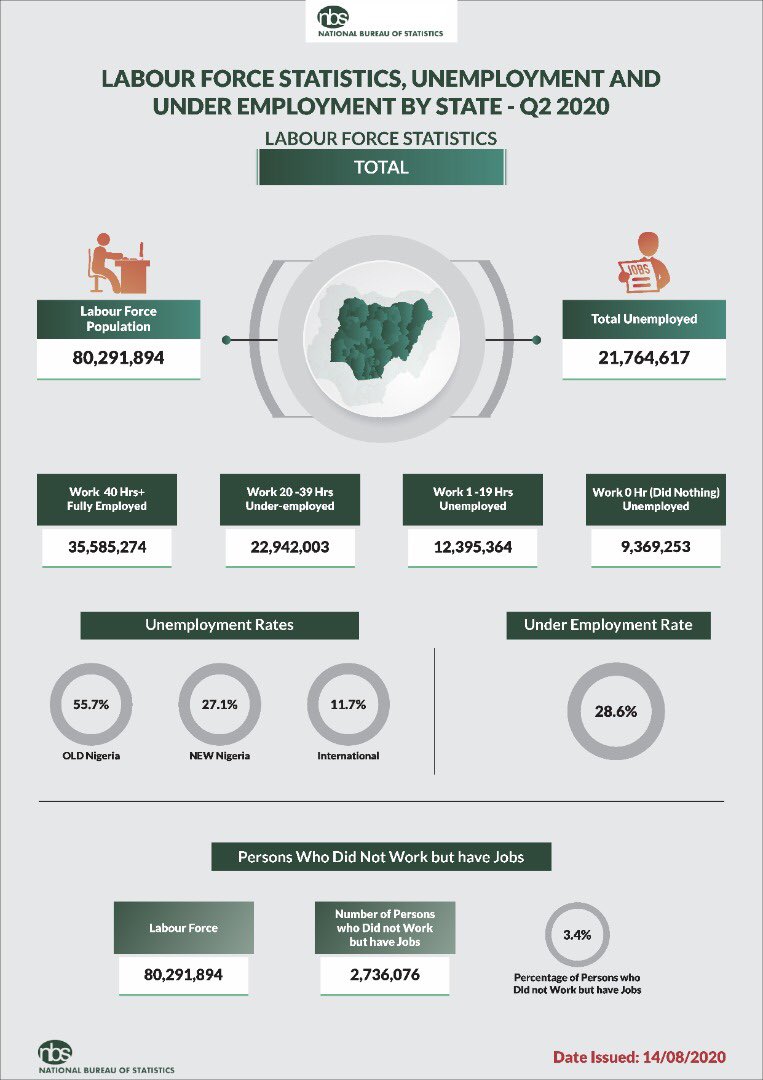News
What the National Bureau of Statistics’ Report on Unemployment Rate in Nigeria Really Says

The National Bureau of Statistics (NBS), on Friday, August 14, released its unemployment methodology review after almost two years since its last release.
- The number of persons in the economically active or working-age population (15 – 64 years of age) during the reference period of the survey, Q2, 2020 was 116,871,186.
- The number of persons in the labour force (i.e. people within ages 15 -64, who are able and willing to work) was estimated to be 80,291,894. This was 11.3% less than the number of persons in Q3, 2018. Of this number, those within the age bracket of 25-34 were highest, with 23,328,460 or 29.1% of the labour force.
- The total number of people in employment (i.e. people with jobs) during the reference period was dwellers, it rose to 31.5% from 22.8%, while the rate among urban dwellers rose to 23.2% from 58,527,276.
- Of this number, 35,585,274 were full-time employed (i.e. worked 40+ hours per week), while 22,942,003 were underemployed (i.e. working between 20-29 hours per week). This figure is 15.8% less than the people in employment in Q3, 2020
- The unemployment rate during the reference period, Q2, 2020 was 27.1%, up from the 23.1% recorded in Q3, 2018. The underemployment rate increased from 20.1% in Q3, 2018 to 28.6%.
- For the period under review, Q2, 2020, the unemployment rate among young people (15-34years) was 34.9%, up from 29.7%, while the rate of underemployment for the same age group rose to 28.2% from 25.7% in Q3, 2018. These rates were the highest when compared to other age groupings.
This means:
- 13.9million Nigerian youth aged between 15 and 34 years are currently without jobs/underemployed, while 7.6 million of this subset ‘Did Nothing’.
- About 12.2 million women are currently out of jobs and 27 million are currently unemployed.
- Graduates and postgraduates combined made up about 2.9 million of the total Nigerians that are unemployed.
- Out of the 35.5 million Nigerians that are fully employed, 28.8 million of them never attended school (6.29 million) or did not have a tertiary education (22.5).
- In fact, 13.2 million fully employed people in Nigeria are those with Senior Secondary School certificates.





















